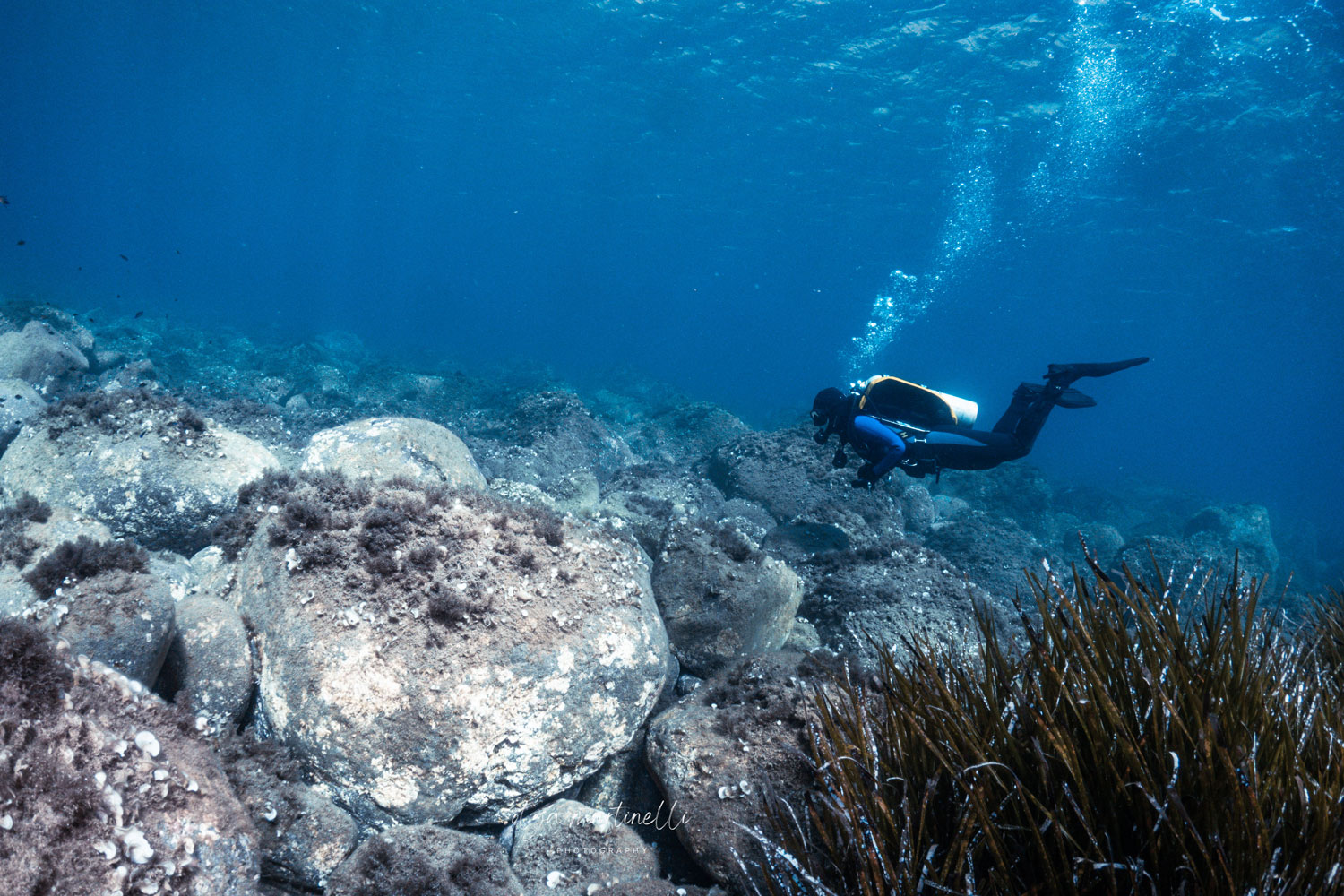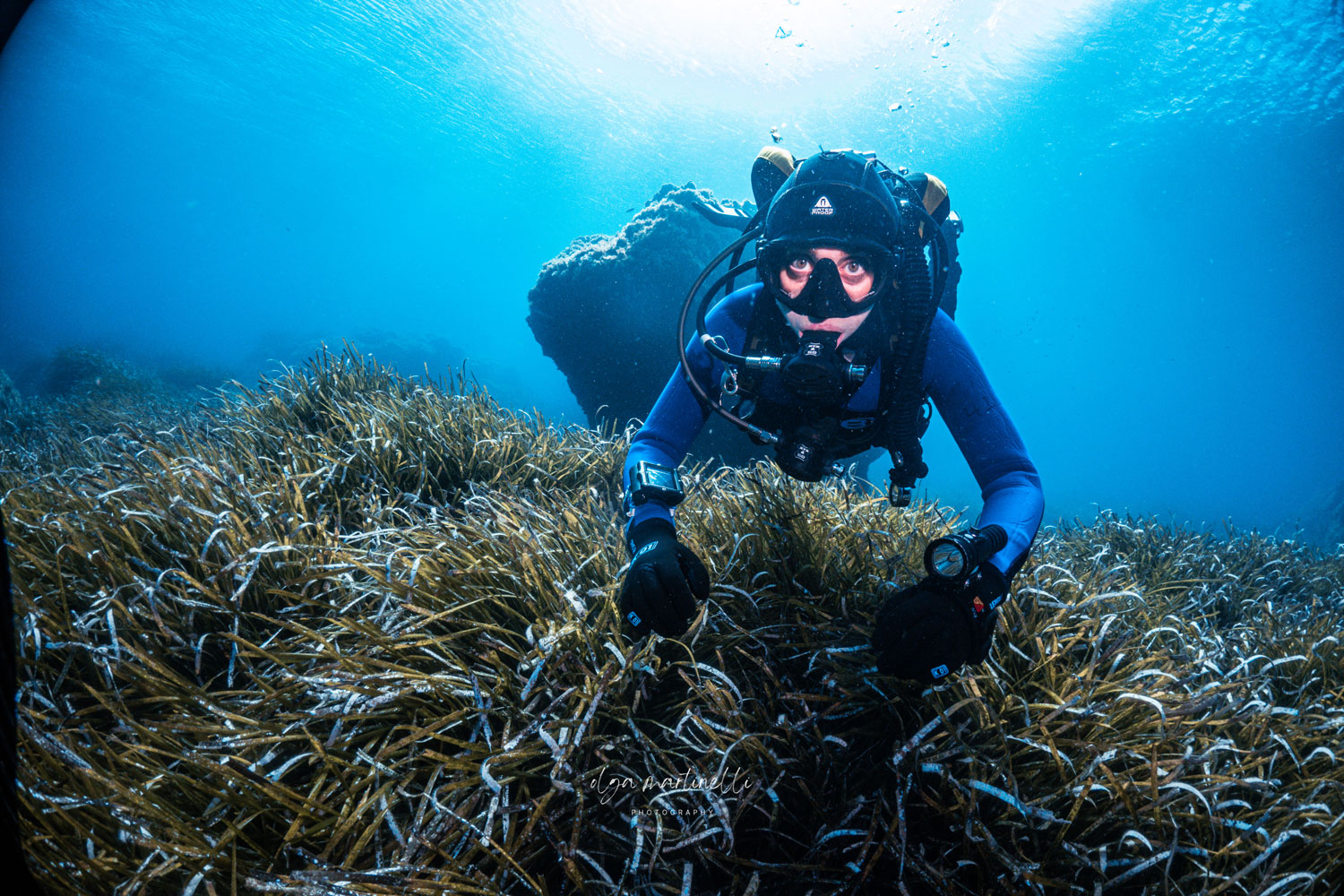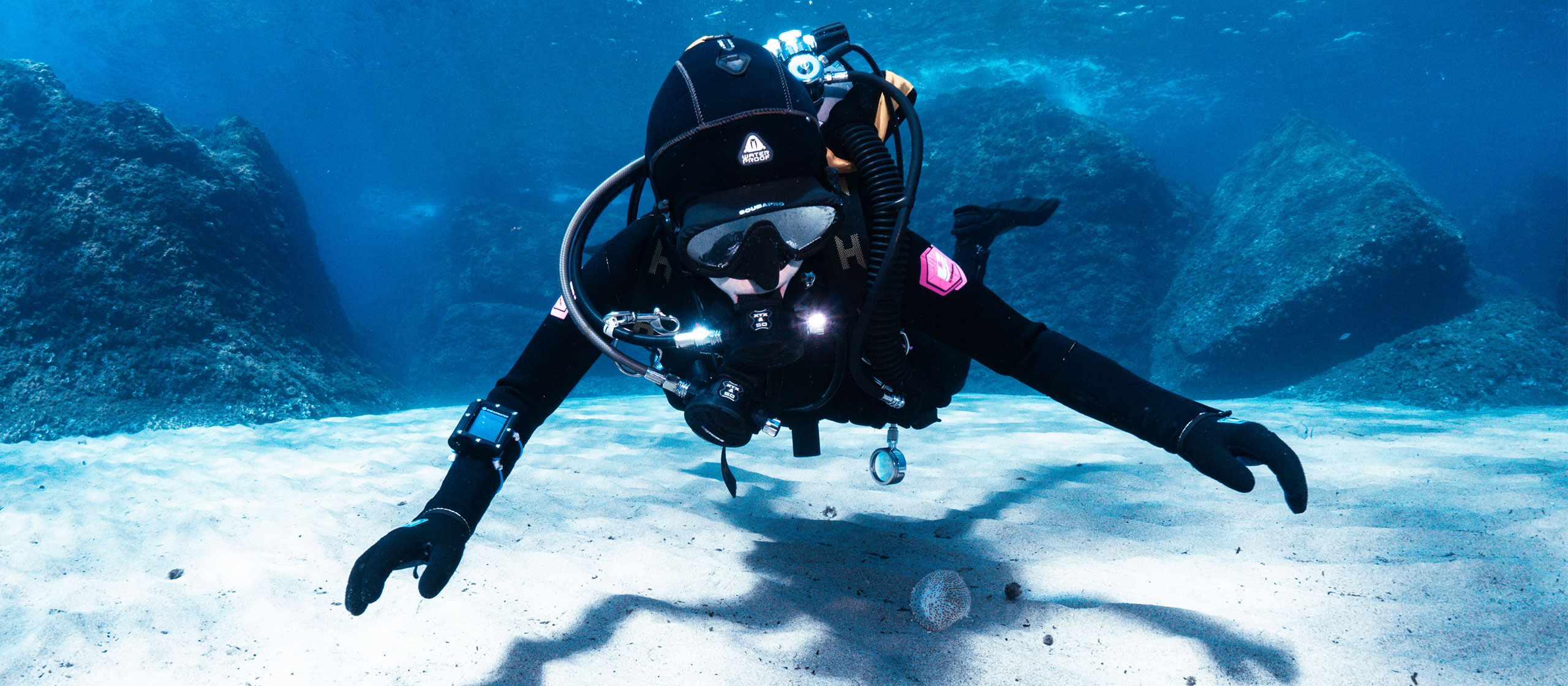Prepared diver
Which ear drops?
Editor’s note
This is the last article of our Equaleasy series, which is based on a course on equalization developed in a collaboration between DAN Europe and champion freediver Andrea Zuccari. It is also the first article to be published without Andrea being among us. He tragically disappeared following a scuba dive to perform maintenance on a freediving platform in Sharm el Sheikh, Egypt, on 28th August. We at DAN Europe mourn the loss of a good friend and close collaborator, and our heart goes out to Andrea’s loved ones. He won’t be forgotten.
Divers have a special relationship with their ears. They care for them almost as much as they do for their equipment. Any mistreatment of this part of the body does not happen intentionally, but is generally the result of mistakes or oversights.
Legendary edible ingredients.
Vinegar, it is worth remembering, is one of the most revered ingredients by sailors and divers. It removes encrustations, neutralises jellyfish nematocysts, and, although the mechanism of action is unknown, is thought to strengthen the immune system and keep high blood pressure at bay. Another well-known ingredient, at least in the Mediterranean region, is olive oil. It counteracts cholesterol, and the ancient Greeks used it in place of soap or as a beauty treatment. Much more recently, due to its emollient and waterproofing properties, olive oil has been used to soothe sunburn. For a long time, these two ingredients for delicious salad dressings were considered a panacea for ear problems. However, both vinegar and olive oil may contain allergens, of natural origin and from preservatives, that can trigger irritations. Pharmaceutical products, which are more effective, refined, well-dosed and safe, are preferable to kitchen ingredients.

Ear maintenance.
Considering the ear as part of the equipment is not a mistake: the ear is exposed to stressors from both waterborne microorganisms and pressure variations. Many divers care for their ears the same way they care for their BCDs and regulators: they rinse them after diving.
Some well-informed divers also treat their ears with a homemade solution before and after each dive as a prophylactic. With the exception of swimming pools, all bodies of water are home to large quantities of microorganisms, ranging from plankton to bacteria, which may cause ear canal infection. The ingredients for the optimal countermeasure have been known approximately since the early days of scuba diving, and they are all readily available: water, alcohol, and vinegar. Or rather: glacial acetic acid, or pure acetic acid. As so often, getting the mix right is crucial. DAN recommends 5% glacial acetic acid, 10% water and 85% alcohol. The acid component creates an inhospitable environment for bacteria, while the alcohol helps water escape from the cells.
More drops.
Earwax plugs, as some divers have unfortunately experienced, can inhibit equalisation, with potentially serious consequences for the tympanic membrane and therefore the hearing. Earwax plugs should be softened with glycerine drops.
But beware: a sense of muffled hearing and fullness in the ear is not necessarily a symptom of earwax accumulation. It can also be the consequence of a tubal problem, i.e., of a problem in the middle ear. After a dive in which you have experienced difficulties with equalisation, you should consider that the problem might be caused by a swelling of the tubes due to inflammation, or that some secretion might have adhered to the tympanic membrane from the inside. This is only one of many cases in which it would be better to consult a specialist before taking any action.
Other cases include outer ear infection: Is it bacterial, viral, or fungal? About ninety percent of external ear infections are of bacterial origin, ten percent are fungal, and viral infections are rare. Each needs a different remedy.
The most important question is whether there is any damage to the tympanic membrane. In the event of a perforation, even a tiny one, drops can worsen the situation. ‘Organic’ or ‘natural’ remedies sold in herbalist shops and, alas, even in some pharmacies, can cause allergies.

Experts agrees on this.
Drops of the ‘Galenic’ vinegar-water-alcohol preparation, dispersed into the ear canal before and after diving, have proven to be very useful and can be used without any problem. Anti-itch drops can also be used in the absence of other symptoms. In the event of itching, or worse, intense discomfort or pain, it would be best not to introduce any do-it-yourself preparations before consulting a specialist.
Bottom line: Prevention is the diver’s job, treatment the specialist’s.
About the author
A DAN Member since 1997, Claudio Di Manao is a PADI and IANTD diving instructor. He’s the author of a series of books and novels about diving, including Shamandura Generation, an exhilarating portrait of Sharm el Sheikh’s diving community. He collaborates with magazines, radios and newspapers, talking and writing about diving safety, marine life and travels.

